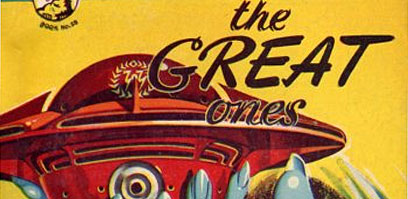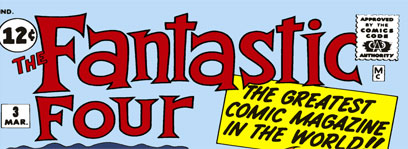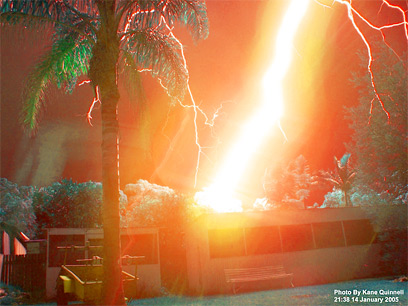
Somehow, I missed this when it first went up: The Forager Blog: Ron on Sci-Fi, Sean on Sci-Fi. This article is written by Jon Hastings, a player of Shock: and interesting guy. In it, he talks about my definition of science fiction (which, instead of writing in prose, I wrote as a game) and Ron Edwards’ take on it. Lemme quote Ron because he says some really nice things:
Anyway, to someone whose thinking inclines in the above direction, Joshua A. C. Newman is bucking for hero status. He is the only person with the guts to tackle this issue in RPG terms…Shock is a first, a de novo, an innovation. But more than merely an innovation, it’s not only what I wanted, but what I needed. In this day and age, I am not going to get science fiction consistently anywhere else. The person typing this post is Shock’s target audience.
… that is, Ron and I see this exactly the same way.
Now, I love SF short stories. Naturally, I have a great fondness for those read in my youth. Some authors really felt like they were talking to me. Bruce Sterling was one of them; he’d always thought about the same things I’d thought about and thought about them further. Ron, though, is ten years or so older than I (though you wouldn’t know it to look at him), so it comes as no surprise that he pegs optimal sci fi about ten years earlier than I do.
And that’s great. Because Shock: is for making your science fiction. It doesn’t reproduce science fiction. It’s a tool for making your own with your own aesthetics and your own moral connundra. It is not the product of scholarly study of science fiction; rather, it’s a technique I developed to make science fiction. I’m a designer, not a writer (a fact noted by so many), so I designed a science fiction system so I could tell the stories I wanted to tell.
This last point here came from a discussion I had with someone on RPGnet. In it, he asked me if I’d read his favorite couple of authors. I hadn’t. Later, he told someone else, when asked about Shock: that “the author doesn’t seem to know as much as he thinks he does.” Another person expressed concern that my sources listed were all “older” authors (Bruce Sterling is an old author! That makes me feel old!) That baffled me: one’s ability to build fiction is not based on how much other fiction one has read, it’s based on the number of stories told. I wrote Shock: so that those stories could have a structure — one that I recognize in the stories I like and one that I think works very, very well — and you can bring your aesthetic and moral machinery to the table and enjoy the process of creation.
Shock: is for your stories. Build what you want to build.









